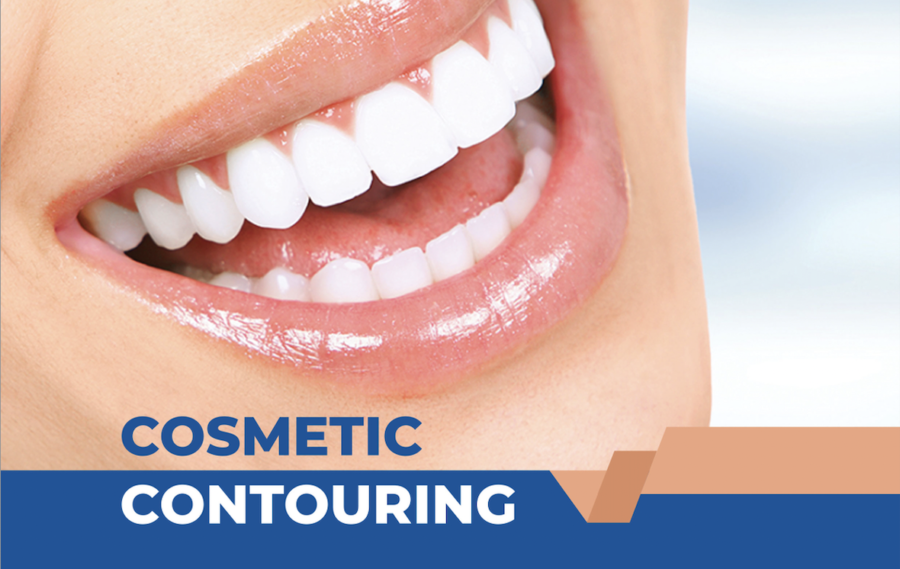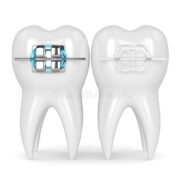Want to improve the look of your smile without breaking the bank? There’s nowhere else to look! In this blog, we get into the specifics of dental bonding costs in India. You deserve the best for your beautiful teeth, and we’re here to walk you through every step of this common cosmetic dental process. Dental bonding is an affordable way in terms of cost to straighten, reposition, or repair damaged or discoloured teeth. Together, let’s explore the world of dental aesthetics and learn how to have a gorgeous smile without going over budget.
What is Dental Bonding?
Dental bonding is a cosmetic dentistry procedure where a resin material that matches the color of the tooth is applied to fix various faults in teeth. The process involves meticulously shaping, smoothing, and bonding the resin to the tooth surface, enhancing the tooth’s look and, on occasion, its functionality.
Procedure for Dental Bonding in India
Preparation: The dentist begins by selecting a resin color that closely matches the natural shade of the patient’s teeth.
Surface Etching: To ensure proper adhesion, the tooth’s surface is lightly etched, creating a textured surface for the resin to bond with.
Application of Resin: The pliable resin material is then skilfully applied and shaped directly onto the tooth, allowing the dentist to correct imperfections or enhance the tooth’s appearance.

Curing Process: A special light is used to harden or cure the resin. This ensures a durable bond and a smooth finish.
Final Touches: After the resin has cured, the dentist trims, shapes, and polishes the bonded area to seamlessly blend with the natural teeth.
Anesthesia Consideration: In most cases, dental bonding is a painless procedure that does not necessitate anesthesia unless it is being used to fill a cavity.
Duration: Dental bonding is known for its efficiency. The entire process typically takes 30 minutes to an hour per tooth.
Common Dental Bonding Applications | with Cost
Repairing Chipped or Cracked Teeth: Dental bonding effectively restores the structure of chipped or cracked teeth, providing a seamless and natural-looking repair.
Closing Gaps Between Teeth: Dental bonding makes it possible to bridge unwanted gaps between teeth, giving the appearance of a more uniform and attractive smile.
Tooth Reshaping: Irregularly shaped teeth can be reshaped through dental bonding, ensuring a harmonious and balanced appearance.
Covering Discolorations: Stubborn stains and discolorations are concealed with tooth-colored resin, enhancing the overall tooth color.
Protecting Exposed Tooth Roots: Dental bonding offers a protective layer over exposed tooth roots, addressing sensitivity and preventing further damage.
Filling Cavities in Front Teeth: Small cavities in visible front teeth can be discreetly filled with tooth-colored resin, maintaining a natural look.
Advantages Over Alternative Treatments
Conservative Approach: Dental bonding is a minimally invasive procedure, preserving more natural tooth structure compared to options like veneers or crowns.
Cost-Effective Solution: It provides remarkable cosmetic results at a more affordable cost compared to some more extensive cosmetic dental procedures.
Single-Visit Convenience: Dental bonding is often completed in a single appointment, offering convenience for individuals with busy schedules.
Versatility and Quick Results: The procedure can address multiple cosmetic concerns in one session, providing versatile and immediate smile enhancement.
Reversible Nature: Unlike irreversible procedures such as veneers, dental bonding is reversible, allowing for adjustments or alternative treatments if needed in the future.
Factors Influencing Dental Bonding Cost
Material Quality and Selection
The total cost of the dental bonding operation is significantly influenced by the type and quality of materials used. Higher quality, nearly tooth-natural translucency and colour composite resin components are usually more expensive. The material selection may have an effect on the dental bonding’s duration, strength, and appearance. Patients could be able to choose from a variety of resin grades, and the price would change correspondingly. Purchasing higher-quality materials frequently results in a more visually beautiful and long-lasting product.
Complexity of the Procedure
Dental bonding’s overall cost is directly dependent to how complex it is. The extent of tooth decay and the difficulty of the required cosmetic enhancement dictate the dentist’s time and effort.

Geographic Location
Dental bonding expenses are significantly influenced by the dental practice’s location. Dental treatments are priced differently in each location due to variations in operating costs and cost of living. Its expenses may be greater in urban locations or in places with higher cost of living than in rural or less expensive areas. Patients should budget for dental bonding operations after learning about these geographical variances.
Expertise of the Dental Professional
An important aspect in figuring out the total cost of bonding is the dental professional’s ability and experience. Dentists with extensive training and experience frequently charge more because they are more adept at producing the best possible outcomes. Even if working with a reputed and competent dentist will guarantee better results, patients may opt to pay a greater fee for this assurance. The degree of experience can affect the bonding process’ accuracy, which affects the cosmetic enhancement’s overall success and durability.
Dental Bonding vs. Alternatives: Cost Comparison
Dental Bonding vs. Veneers Cost
Bonding: In general, dental bonding is less expensive than veneers. Although teeth look better after both procedures, bonding is less expensive because it applies composite resin directly to the tooth.
Veneers: With veneers, the front surface of teeth is covered in composite or porcelain shells that are custom-made. Veneers are often more expensive than dental bonding because of their material and customisation options.
Durability and Longevity
Dental Bonding: Bonding is strong, but it could not last as long as veneers. Over time, bonding could require touch-ups or replacements, particularly if it experiences a lot of wear and strain.
Veneers: Compared to dental bonding, veneers usually have a longer lifespan and are more stain- and chip-resistant. They might need to be changed less regularly.
Dental Bonding vs. Crowns Cost
Dental Bonding: In general, dental bonding is less expensive than crowns. It is an appropriate choice for little cosmetic adjustments or flaw repairs.
Crowns: Crowns include completely covering the tooth with a specially designed cap, frequently composed of metal or porcelain. When compared to dental bonding, crowns are more expensive because to the extra materials and personalisation.

Tooth Preservation
Dental Bonding: More of the natural tooth structure is kept when dental bonding is used because it needs less enamel removal. It’s a cautious method of cosmetic dentistry.
Crowns: Crowns need more thorough tooth preparation, which includes removing a large amount of the tooth’s natural structure. This is necessary for the crown to fit correctly, even if it might compromise the integrity of the tooth.
Dental Bonding vs. Implant Cost
Dental Bonding: Dental bonding is far less expensive than dental implants. Without requiring surgery, it offers an affordable alternative for aesthetic improvements.
Implants: Dental implants entail the surgical implantation of synthetic tooth roots, which are then connected to a replacement tooth. The overall expenses of implant operations are increased by the surgical and laboratory work needed.
Treatment Approach:
Dental Bonding: Cosmetic enhancements can be achieved using dental bonding, a surface-level, non-invasive technique. For people who want to improve their appearance without having to undergo substantial dental procedure, it is perfect.
Implants: Complete tooth replacement that takes into account both cosmetic and functional factors is provided by dental implants. For individuals who have lost teeth, they are advised since they offer a long-lasting and permanent remedy.
Dental Bonding Cost Breakdown
Consultation Fees:
Usually, consultation costs fall between ₹3,000 and ₹15,000. Certain suppliers include free initial consultations in their promotional packages.
Importance:
Understanding the patient’s cosmetic objectives and assessing the patient’s appropriateness for dental bonding are critical components of the initial consultation. It enables the dentist to talk about the anticipated results and gauge the scope of the necessary operation.
Cost Considerations:
Depending on the dentist’s area of specialization and experience, consultation fees may change. While some dental offices may charge an additional cost, others may include a free first consultation as part of their services. This amount is part of the total dental bonding cost.
Material Costs:
Depending on the resin quality used, material prices might change. Premium tooth-colored resin will set you back anywhere from ₹7,000 to ₹35,000 per tooth.
Importance:
To get dental bonding results that are both visually acceptable and long-lasting, high-quality composite resin materials are necessary. These materials add up to a substantial portion of the total cost.
Cost Considerations:
The final cost of the material may vary depending on the kind and caliber of resin used. High-quality, tooth-colored resin that closely resembles real teeth is typically more costly. Patients could have the choice of selecting from various resin grades, each with a distinct price tag.
Procedure Costs:
The procedure can vary from ₹7,000 to ₹70,000 per tooth, depending on the dentist’s experience, the location, and the intricacy of the bonding. Costs associated with procedures may be greater in urban areas or in locations where living standards are higher.
Importance:
Procedural costs include the expenses related to the dental bonding technique itself, such as the dentist’s time, expertise, and use of specialized instruments.
Cost Considerations:
The complexity of the treatment—such as contouring or treating several teeth—can influence procedure costs by affecting the dentist’s total time and effort. Geographical location may also have an impact on procedure costs because operating expenditures vary depending on the locale.
Aftercare and Follow-up Costs:
The cost of aftercare, which includes visits for repairs or adjustments, can vary from ₹3,500 to ₹15,000 every visit. These expenses go toward the whole commitment to preserving dental bonding’s effects throughout time.
Importance:
In order to guarantee dental bonding success and endurance, aftercare is crucial. This might involve making any required corrections, fixes, or follow-up visits to check on the health of the bonded teeth.
Cost Considerations:
Depending on the circumstances of each patient, aftercare expenses can include follow-up dental appointments for examinations, modifications, or repairs. These expenses add to the overall outlay of funds needed to sustain dental bonding’s effects over time.
Conclusion
When it comes to achieving a brilliant smile, dental bonding is an adaptable and affordable option. Important things to remember are that it is reversible, versatile, and reasonably priced. It is advised to meet with Dr. Chirag Chamria for customized consultation and guidance. Accept the transforming potential of dental bonding and confidently maintain your natural smile. Reach out to Dr. Chirag Chamria right now to begin your road towards becoming your most vibrant and self-assured self again. Your ideal smile is waiting for you; together, let’s make it a reality!





